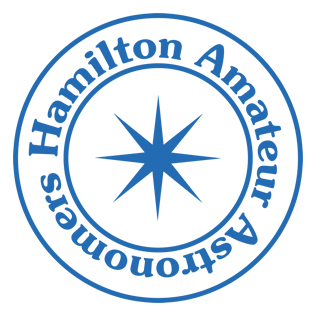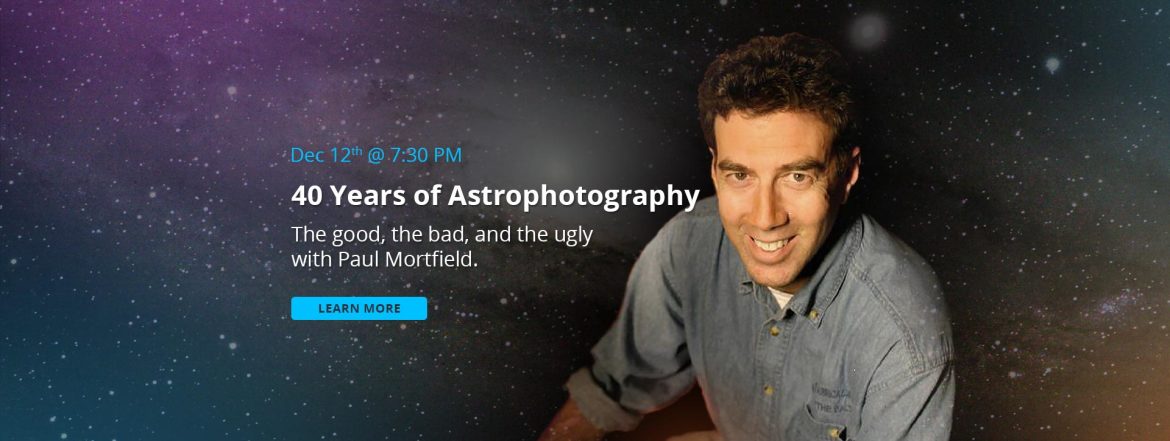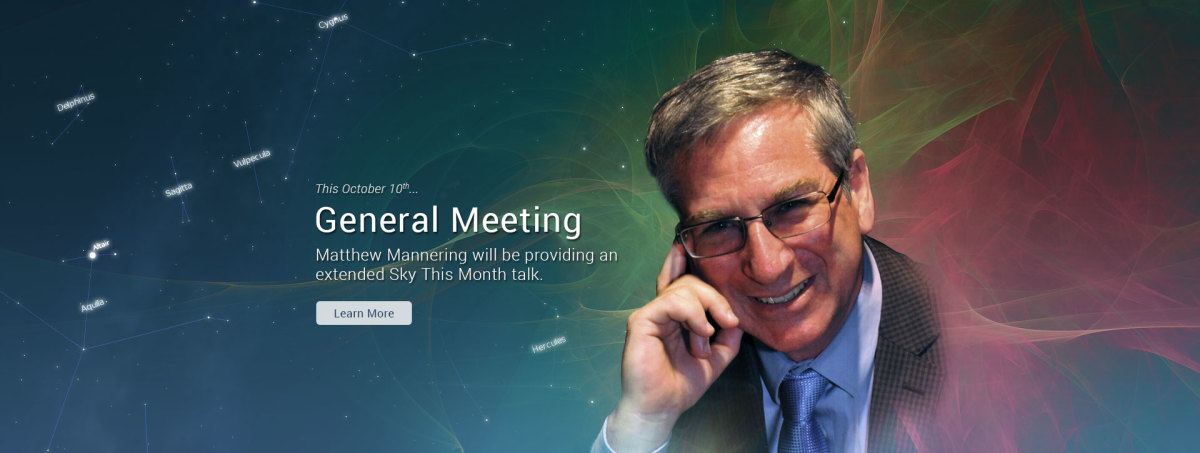Meetings
40 Years of Astrophotography – the Good, the Bad and the Ugly
With the advances in digital cameras today, many people are trying to photograph the night sky. It’s always easy to show the successes in astrophotography, but there are many attempts that can easily frustrate and dishearten beginners. I will share the often humorous experiences of things gone wrong, and the journey to obtaining a successful astro-photograph.
Paul Mortfield is Chair of the David Dunlap Observatory in Richmond Hill and a member of the RASC Toronto Centre. He has worked on NASA’s SOHO and LCROSS missions and hosted educational broadcasts on NASA-TV. His astro-photos have appeared in museums, magazines, calendars and on NASA’s “Astronomy Picture of the Day” webpage.
Continue Reading
Extended Sky This Month
Matthew has been interested in astronomy and space flight for as long as he can remember having several 60mm scopes during the 70’s and and taking his first moon photo through one of them around 1977. Matthew can remember watching a launch blow up on the pad when he was about 5 years old and asking his mom “if that was what was supposed to happen?”. Then in the 90’s Matthew and his wife spent evenings sitting on various beaches while camping learning the constellations and trying to find objects through a 60mm birding scope. It wasn’t until 2003 when Matthew bought an 80mm refractor that his observing really took off. Matthew continued learning the sky on his own until 2008 when he joined the HAA. During that first year Matthew made the mistake of looking through a 12 inch scope at Saturn and needless to say, that led to another scope purchase. Matthew joined the council 4 years ago as Membership Director and then moved on to his current position as Observing Director.
A brief look at astronomical history and beyond.
From ancient calculations of the radius of the Earth to the Big Bang, Mario Carr will discuss some major astronomical achievements that have led to an understanding of our place in the Universe.
Mario Carr has been interested in astronomy since he was a child. He has a degree in Physics and is the club’s Director of Publicity. For the last four years, he has been writing a monthly astronomy column for local community newspapers, appeared on CHCH-TV to talk about the night sky and has promoted the club’s meetings and events through the media. Mario runs a public relations and communications business called The Carr Marketing Group.
Sir William Herschel, A Model for Amateur Astronomy
Everyone knows Sir William Herschel is an 18th century astronomer famous for discovering the planet Uranus. Looking a little deeper finds him an avid amateur observer and recorder who kept in contact with other amateur astronomers and never ceased wondering about the heavens. Although we are separated from him by two centuries, we may find many similarities in the circumstances and methodology Herschel lived. I suggest that he is a model for us to follow today.
Dr. Michael Spicer is a life-long amateur astronomer, former Observing Director and Chair of the Hamilton Amateur Astronomers. He has previously spoken at HAA on subjects such as observing Jupiter, Saturn and the Moon, the astronomer Charles Messier and observing the Messier objects. A retired attorney, Dr. Mike resides with his wife Therese and a few telescopes in Kitchener, Ontario
Rory Woods will be speaking about welcoming our computer overlords in astronomy. Our society has seen computers become an important aspect in almost every facet of life. Within astronomy, computers are used to control our telescopes, process and analyze our images, and even create entire new (simulated) universes of our own. With every passing year simulations become more sophisticated as they increase in size, resolution, and physical detail, allowing us unique views into any possible history our Universe might have had.
This talk will give an overview of computers in astronomy. I’ll focus on the need for computing in observational astronomy and then on the history of astrophysical simulations. I’ll talk about some of the limits and challenges we face with trying to represent our Universe in a computer, and show some of the failures and successes we’ve had in doing so. I’ll finish by talking about the most recent, cutting edge simulations and about my own research in computational astrophysics.
Rory Woods is a PhD student at McMaster University as well as a presenter at the McCallion Planetarium and the Origins Institute 3D Theater. His research is on computational methods in astrophysics and is applied to galaxy formation.


